Note: This article will be turned into a video soon and made freely available. Until then, thank you, substack subscribers for supporting me, and if you are not a paid subscriber, this is my job now and I could use the $5.
The Google Earth Files used in the Galaxy example are available here.
Have we been visited by Aliens? Well, David Grusch certainly thinks so.
On July 27th, 2023 Mr. Gursch, who is a former Air Force Intelligence Analyst, along with and Ryan Graves and David Fravor, who are former Navy pilots, testified in front of Congress on the existence of UFOs or Unidentified Flying Objects.
Note that sometimes UFOs are called UAPs or Unidentified Aerial Phenomenon.
I used to write intelligence gathering software for a living and I still do some consulting for Veloxxity, a private intelligence company used by corporations and governments to estimate risk.
If Veloxxity came to me and asked me to write up an intelligence summary for a client on the likelihood of alien visitation, how would I do it?
I would start with Intelligence Community Directive 203 or ICD 203 to express likelihood or probability.
The questions to be analyzed are:
What is the likelihood of an intelligent civilization in the Galaxy?
What is the likelihood of an intelligent civilization discovering us?
What is the likelihood of the intelligent civilization traveling to Earth?
Our galaxy is so big that we can’t think of it in terms of miles or kilometers. We have to think of it in terms of light years - or the distance that light travels in one year.
Our home, the Milky Way galaxy, is roughly 87,400 light years wide plus or minus 3,590 light years. It’s also about 1,000 to 3,000 light years thick.
The Milky Way galaxy is so big that it is almost impossible to imagine its scale. So let’s shrink the Milky Way galaxy down to the size of the US.
The center of the galaxy would be in Odin, Kansas.
Our solar system is about 26,500 light years from the center of the Milky Way. That would put it right about here… in the parking lot of the Wendy’s in Biloxi Mississippi.
And the distance from the sun to the earth would be roughly .74 of a millimeter. That would be about three fifths of the distance of a grain of sand that you find in the parking lot of the Wendy’s.
These are just the distances in our galaxy, there may be 100-200 billion galaxies in the entire observable universe.
Economist Robin Hanson created the “The Great Filter” theory to explain why it seems like the universe is so devoid of life.
The idea was that there are nine evolutionary steps on the road to intelligent life.
Those steps are:
The right star system (including organics and potentially habitable planets)
Reproductive molecules (e.g. RNA)
Simple (prokaryotic) single-cell life
Complex (eukaryotic) single-cell life
Sexual reproduction
Multi-cell life
Tool-using animals with intelligence
A civilization advancing toward the potential for a colonization explosion
Colonization explosion
The more I read about this, the more I realized that the Great Filter is more like a guidebook on how evolve and it doesn’t explain some of the dangers inherent in evolving into a spacefaring species.
A better example is that the road to intelligent life is more like the TSA Security Checkpoint at the airport than a great filter.
The likelihood of another intelligent civilization in the Galaxy.
There are things that you need to have, and things that you can’t have, if you want to get on your interstellar flight.
Carbon is your ID
Phosphorus is your boarding pass
The magnetosphere is your ride to the airport
And you can’t get on the plane with a gun
Carbon
If we compare the top five elements in the universe with the top five elements in the human body, carbon shows up in both places.
Carbon can form up to four stable bonds. And this is pretty important because it means it can bond to itself and create these chains of complex molecules that are necessary to support life.

Now it’s theoretically possible that Silicon, Germanium or even Tin could also form similar complex shapes. But they are heavier, rarer and the bonds are weaker.
The top five elements are pretty evenly distributed across the galaxy, although there may be pockets where they aren’t. But if your particular solar system for whatever reason doesn’t have a lot of carbon, you’re probably not getting on the plane.
Phosphorous
Phosphorous is the boarding pass to get on the intergalactic flight.
Hydrogen accounts for 74% of the mass of the universe while Helium contributes another 25%. Every other element in the universe only contributes to 1% of its mass.
Phosphorus is essential to all known living things. It forms the backbone of DNA and RNA and you need it for energy transfer in cells as part of ATP or (adenosine triphosphate).
Imagine that you put the boarding pass for the interstellar express inside your suitcase and now you can’t find it - you aren’t getting on the plane until it’s found. If all of the phosphorus in a solar system is stuck in a star or in the mantle of a planet, you are at a significant disadvantage for life as we know it.
The Magnetosphere
The Magnetosphere is kind of like your ticket insurance.
When you think of weather satellites, you typically think of monitoring weather on Earth, but there is also weather in space.
There are solar storms, solar flares, cosmic rays and radiation. Astronauts that travel to Mars will suffer some pretty substantial cancer risks in later life by being exposed to all of that radiation.
One of the two things that makes the Earth special is that we have a strong magnetic field that protects us from radiation.

And at one point the moon did as well.
The moon acted like a second radiation shield that helped life develop complexity without the threat of excessive cell-destroying radiation.
The moon protected us just like ticket insurance from the risk of developing cancer under the harsh radiation of the sun.
The second thing that makes the Earth special is Jupiter.
Jupiter’s mass acts like the credit card company that watches over our purchases.
Jupiter protects the Earth because its gravity is so massive that not a lot of asteroids get by it. We saw this firsthand in 1994 with the impact of the Shoemaker–Levy 9 comet.
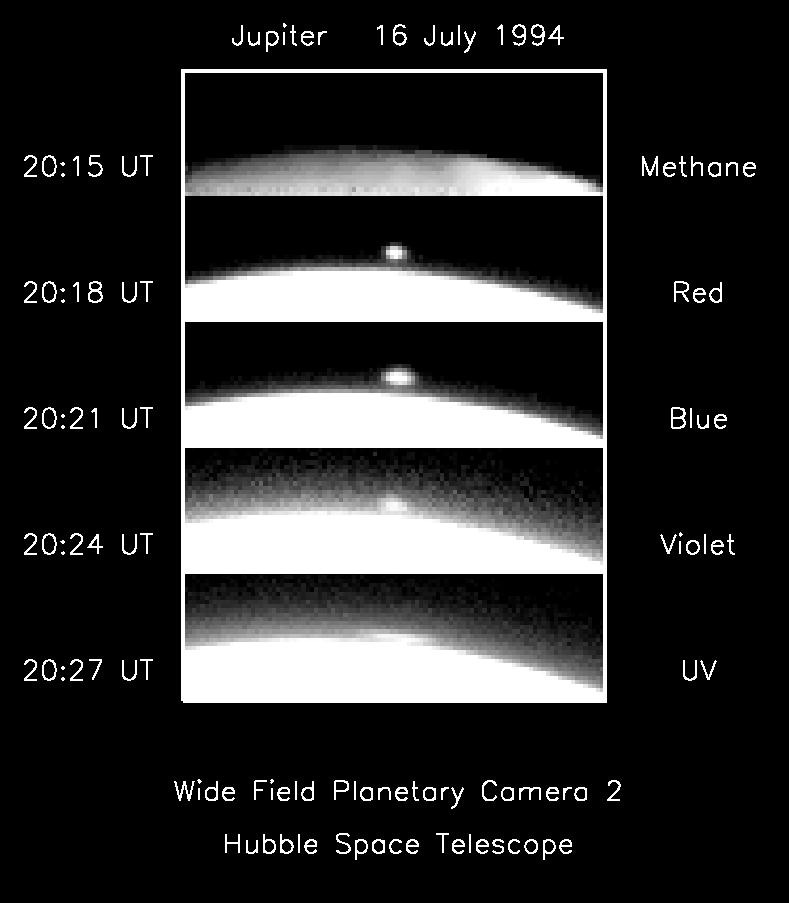
While there may be up to 40 billion planets that may be able to support life in our Milky Way galaxy. It could be a lot harder for life to develop if it’s being bombarded by radiation and getting reset every couple of million years by a giant space rock.
War is a Filter
In America, a private citizen can concealed carry a handgun and occasionally they forget it’s on them when they catch their flight.
If you’re caught with a concealed handgun, you’re not getting on the plane.
Even if all of the other criteria for life are there, the civilization might destroy itself in a nuclear or biological war or over resources when rapid industrialization makes fighting over those resources necessary. Climate change from industrialization may also play a role.
We’ve come pretty close to destroying ourselves as a species a few times and we’re not out of the woods yet. When you think about it, any intelligent species probably got that way by their ability to recognizing and mitigate threats.
Or by being the threat…
War isn’t just a human concept. Colony based insects like ants, termites and even hornets go to war with other colonies all the time - usually over territory.
To sum it all up, in order for an intelligent alien civilization to exist in the first place, much less visit us, they have to
Live in a solar system with abundant carbon and enough phosphorus
Be shielded from radiation and impact events
Not destroy themselves
The Likelihood of Discovery
Italian-American physicist Enrico Fermi once speculated that there are billions of stars and billions of chances for life to develop, so where are all the aliens?
The answer is that they might be there, but they haven’t found us.
Italian inventor Guglielmo Marconi created the wireless telegraph - radio - in 1896.
Those first few taps of the morse code key are about 125 light years away and passing the Second Street Bean coffee house in Columbia, Mississippi right now on our modified universal map.
When we send out radio waves, we’re basically advertising our location for the entire universe to see. If we use radio waves as a metric, the only people who might have received these signals are roughly within 125 light years.
Of course, we have to assuming that aliens even detect the signals or are looking for them in the first place. Intensity decreases with distance with something called the inverse square law.
At some point, it’s impossible to tell the radio photons from naturally occurring background radiation.
However, radio waves aren’t the only way to prove intelligent life. Another way would be through Oxygen.
Oxygen is extremely reactive. If all of the oxygen producing plants and algae on earth disappeared tomorrow, there would be no more oxygen on Earth after 4,000 to 5,000 years. It will all bond to iron and become iron oxide be burnt up into carbon dioxide.
This means that if we notice a planet with oxygen, something is making all of this oxygen.
Transit spectroscopy is a way to detect molecules on different planets. Different molecules absorb very specific colors of light. If we notice that some of these colors are missing, it means that some of these molecules are present. This allows us to infer the chemical makeup of the atmosphere of the planet and things like the temperature and density of the molecules.
An alien society looking towards Earth would have had about 2.4-3.5 billion years, which is roughly the amount of time since the emergence of oxygen-producing life, to notice us and decide to check us out. If Aliens are out there, it's more likely that transit spectroscopy, not radio waves would have revealed our location.
The likelihood of an intelligent civilization traveling to Earth.
An alien civilization would leave their home for a set of five reasons:
Resources, trade or money
Religion
Fame or Vanity
Scientific curiosity.
Survival or Defense
Resources, trade or money
An alien civilization may or may not have the concept of money or even trade, but they definitely will understand resources.
No matter what kind of technology you have, you can’t cheat physics. You’re still a carbon-based life form that needs to sit inside of a can to go from one side of the galaxy to the other, and that’s gonna take some resources.
I doubt that an alien species would come to Earth to extract our resources.
I live in Silver Spring, Maryland. If I want a burger from Wendy’s, I’m going Aspen Hill or Tacoma Park. I’m not going to travel all the way to the Wendy’s in Biloxi, Mississippi.
Any civilization that needs resources can probably find those resources the galactic equivalent of Tacoma Park. Or they are technologically advanced enough to find alternatives.
Religion
One could argue that the Spanish conquered South America to convert the Native Americans to Christianity and save their souls. But if the main resource of South America was corn and not Gold... How long do you think the first missionary would have stayed?

Aliens visiting earth would have advanced their technology far beyond what humans understand and they might have a set of religious beliefs that are incomprehensible.
Just imagine trying to explain the concept of a Christian God, the holy trinity, heaven, and hell to someone who has never heard of those concepts and who might not even speak your language.
Fame or Vanity
Sir Edmond Hillary and Tenzing Norgay didn’t climb Mount Everest because they wanted the mountain’s resources.
The expedition was primarily funded by the British government and while there was data collected related to high-altitude physiology, it was secondary to the goal of just climbing the mountain.
A modern expedition to Mt. Everest has an average cost of $58,069 dollars.
Now compare that to NASA’s Artemas mission which will return mankind to the moon. This will cost about $4.1 billion dollars per launch.
Now imagine the cost of going to Alpha Centauri, the closest star system to our solar system. Estimating this would be like an ancient Roman sailor trying to estimate the cost of traveling from Italy to San Francisco, California.
Aliens may or may not think in money, but they certainly think in resources. Would some alien fund an expedition to Earth for the fame of the crew when due to the vast distances, it might be thousands of years before that crew returns with news of the visitation?
Scientific Curiosity
A new species of frog, Hyloscirtus tolkieni, was recently discovered in the Andes Mountains.
Sending an expedition to the Andes Mountains to look for new species of tree frogs isn’t that expensive and there could be some kind of resource gained from that. For example, the tree frog may secrete a slime that kills cancer cells.
If humanity discovered signs of simple life on Mars, we might prioritize exploration of this phenomenon. But if we found signs of life on Pluto, visiting would require an 18 to 25 year-round trip. We might put it on the list to visit, but it won’t be at the top of the list.
If intelligent aliens discovered a sign of life on Earth, their scientists might want to go and check out this new source of regenerating oxygen, but that doesn’t mean that the resource cost can be justified.
A spacefaring civilization may consider going between planets like a trucking company delivering cargo from New York to Los Angeles - not cheap, but doable. But is the trip worth the cost?
Survival and Defense
Survival and Defense may be the most likely case for alien contact.
The book series “The Dark Forest Trilogy” by Liu Cixin popularized the theory that any spacefaring civilization would be a threat to any other spacefaring civilization.
Information cannot travel faster than light - that would violate causality. So, it might make logical sense for aliens to wipe us out as soon as we are detected because there may be exponential growth in between observations.
The spear was invented 500,000 years ago. The bow 60,000 years ago. Gunpowder was invented 700 years ago. Aircraft, submarines and nuclear weapons about 100 years ago. If our technology increases at an exponential rate, it makes more sense to wipe us out as soon as possible before we compete for galactic resources.
And to make matters even worse for aliens, all solar systems are moving, so there is a finite window for observation. You might only get a 10,000 Earth year window to look at Earth and then won’t get another chance to see what’s going on.
But then again, if there was another civilization in our Milky Way wiping out other civilizations with advanced technology, it would probably make some noise. Why haven’t we detected them?
The fact that we are still alive as a planet may actually be proof that we haven’t been visited - it’s just too risky to let us live.
Some disclaimers before I get to the final analysis: Since Earth is the only planet we know of with life, I’m using a data set of 1 - Earth. There may be ways that life forms that we can’t even imagine, and scientists are very good at imagining things.
But I still think that the motivations for coming to Earth are still valid.
Breaking down the analysis with IDC 203
IDC 203 is used as a common analytic standard for the intelligence community. We can use the chart below to estimate likelihood of the three major questions.
What is the likelihood of intelligent life in the galaxy?
An equation by Dr. Frank Drake tried to estimate this with the following formula:
N = R x fp x ne x fl x fi x fc x L
R = The number of stars that are born in the Milky Way each year
fp = The percentage of these stars that have solar systems of planets.
ne = The average number of "Earthlike" planets (potentially suitable for life) in the typical solar system.
fl = The percentage of those planets on which life actually forms.
fi = The percentage of life-bearing planets where intelligence evolves.
fc = The percentage of intelligent species that produce interstellar radio communications.
L = The average lifetime of a communicating civilization in years.
Unfortunately, the last three items (in BOLD) can’t be known.
Based on what we’ve observed about the universe, it seems that life is rare and needs very special conditions in order to even have the chance for forming intelligent life.
But, since there are so many possible solar systems in the galaxy, I think there is a roughly even chance at intelligent life and civilizations developing.
What is the likelihood of an intelligent civilization discovering us?
Based on the fact that Oxygen has been produced on this planet for between 2.4-3.5 billion years, I think that there is a roughly even chance that we could be detected by intelligent life. However, since the aliens still need to know where to point the transit spectroscopy machine, everything needs to be aligned for it to work in the first place, and space is pretty big, I think that brings it down to a very unlikely. Geometry is against us.
What is the likelihood of the intelligent civilization traveling to Earth?
Any civilization with the ability to travel between stars that needs resources can probably find it somewhere other than Earth or develop alternatives. Travel for Religion, Fame or vanity is too resource intensive. Scientific curiosity may be a priority for an alien civilization, but they are subject to resource constraints as well.
Survival or Defense is the only reasonable explanation for traveling to our solar system. And the fact that we are still alive only tells us that we haven’t been visited.
There is almost no chance that we have been visited by intelligent alien life.
But what about David Grusch and his testimony?
The Netflix documentary Sour Grapes details the life and cons of a wine fraud criminal named Rudy Kurniawan.
Rudy Kurniawan used his distinctive palate to create vintage bottles of wine by mixing modern wines in different ratios. Then he forged the labels and sold the wine at auction.
He was finally caught when he tried to sell bottles of Domaine Ponsot Clos Saint-Denis from the years 1945, 1949 and 1966. The only problem was that brand had not been produced until 1982.
If you were one of the people who have a bottle of 1946 Domaine, you might think that you have something real. And it’s tangible and you can hold it in your hand.
But it’s already been proven that it’s impossible for that bottle to be real.
Based on logic and science and the fact that you can’t cheat physics, the odds of aliens visiting us and not having wiped us out is remote.
Almost no chance, near zero.
The bottle of wine just isn’t real, even if you can hold it in your hands.
If you have $5.00 to spare, please consider becoming a paid member.
Special thanks to the following scientists that helped review this story:
Dr. Oisín Creaner, Assistant Professor in Physical Sciences at Dublin City University
Professor Marco Thiel, PhD (teal), University of Aberdeen (UK)
Andy Silber, PhD
PhD Student Robin Mentel, University College Dublin
PhD Student Ethan from Northumbria University.
PhD Student Roland Timmerman from Leiden Observatory
Keane Halls from Bangor University
Scott Madison from New Mexico Tech
Ryan Frazee, Cosmologist, University of Kansas
Brian Drourr, professional astrophotographer
Any mistakes I have made are solely my own.










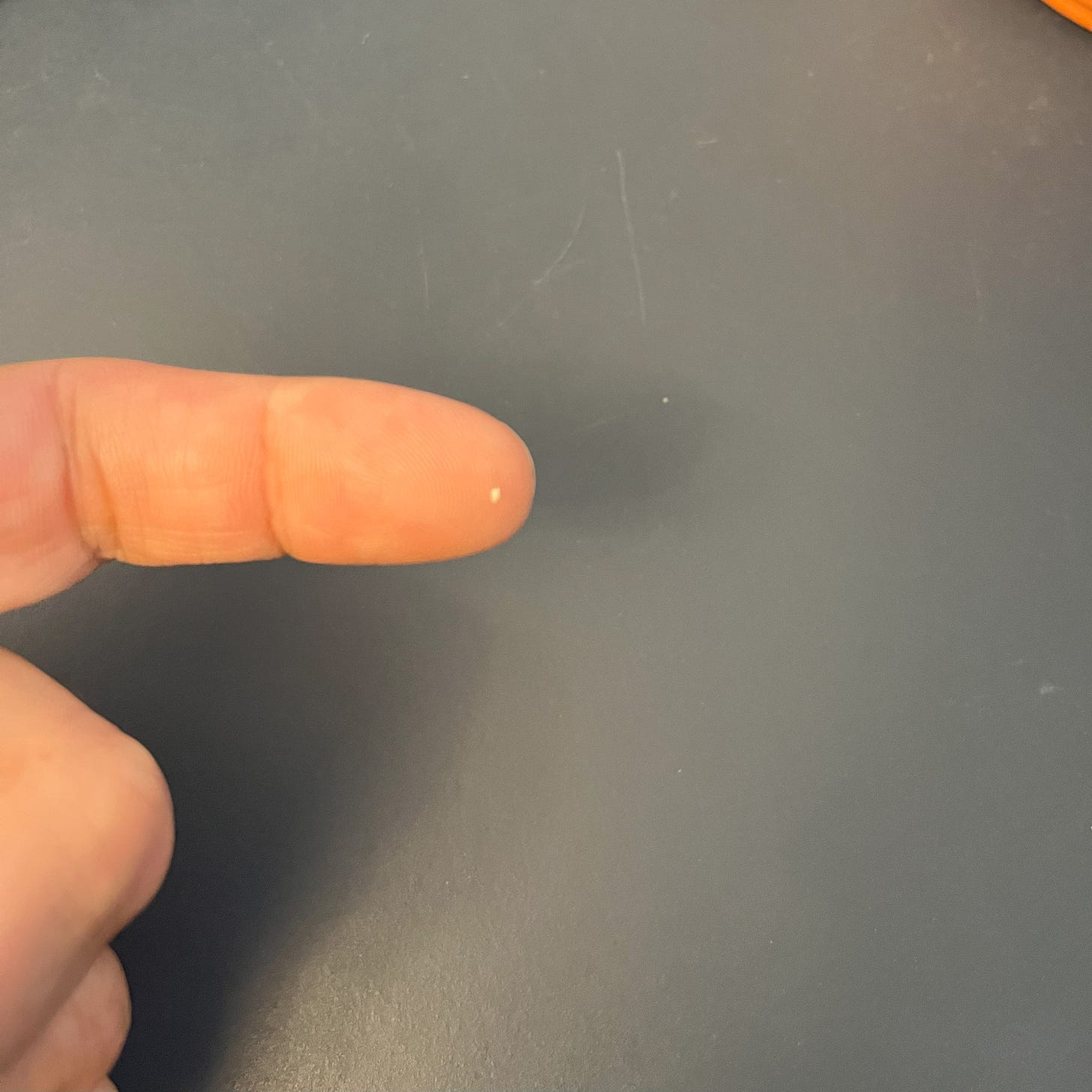







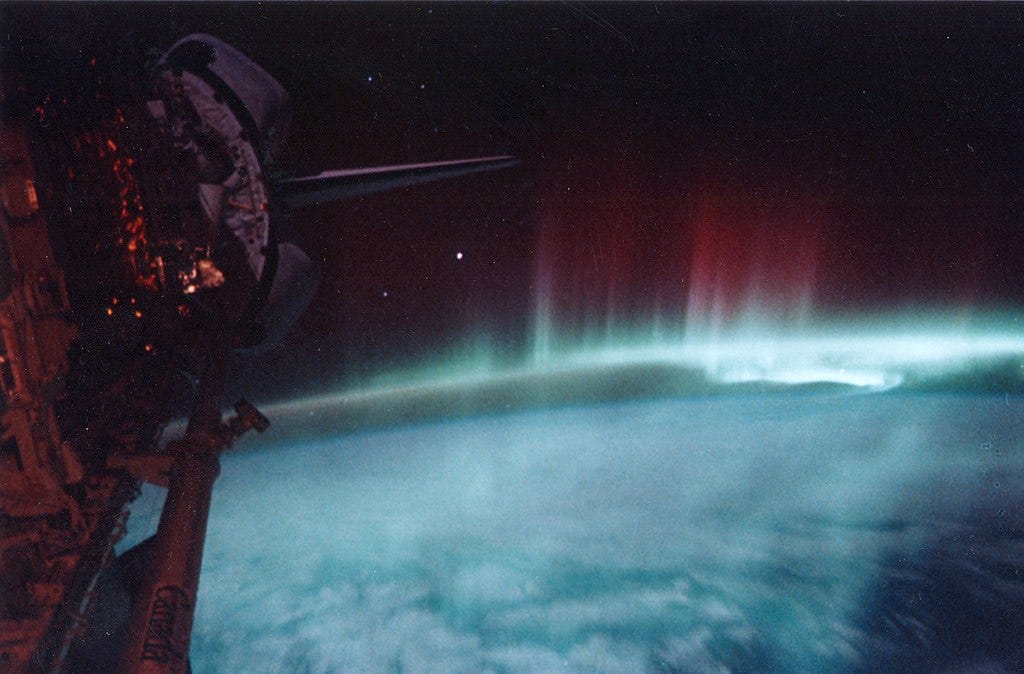













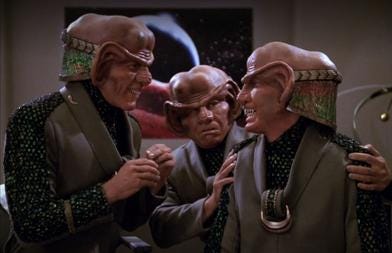



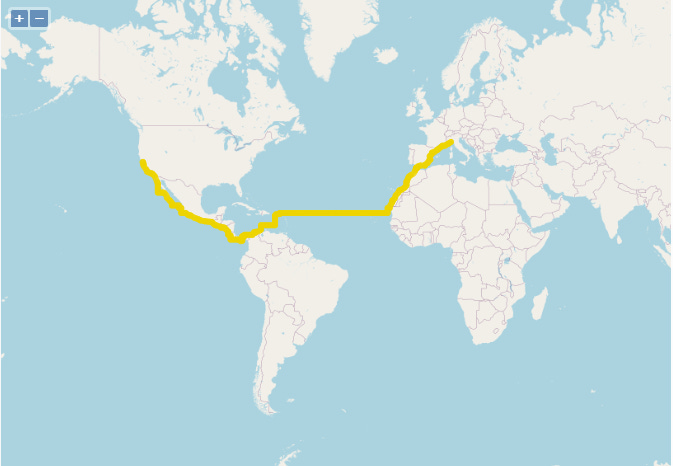









Matt Gaetz said something sensible (bear with me here) which was to the effect: "either we have flagrant liars and crazy people at our highest levels of disclosures, or there's really something here. Either outcome would be of national interest"
Here's another analogy I find useful: the Star Trek test. Ever noticed in Star Trek that battles often take place as if you're watching Horatio Hornblower during the Napoleonic wars? Coming along side one another and firing broadsides, dodging and weaving, "we have them on visual!"
Visual? Did you say visual? You have FTL travel and matter transportation. Why not just teleport a missile into their ship? Or into the core of their planet? Why are you *drilling* a hole into their planet instead of just warping the payload in?
Sure, it's sci-fi, and as such the authors can simply bend their world building to fix this. "Well, you see, the quantum entanglement of the spacetime alternator is so great at the center of a starship that it's *impossible* to …"
Not so in real life. You have to ask these questions (as Ryan has). If these guys can afford to travel across space and time, that presupposes a level of technology that isn't going to manifest in the ways you or I are expecting. And this is *after* you compute all the probabilities above. Ok, so they have shown up here … why would they show up *like this*?
For example, if they wanted to observe us, you can be sure that a civilization with advanced physics is going to have space based observation capabilities that make the NRO look like a child peering through a "telescope" made out of a toilet roll. They can see everything they want to see, across all spectrums, without needing to take any risks.
If they want resources, if they are a space faring Rio Tinto, what the heck do we have that you can't get from the uninhabited rocks in great supply elsewhere? These guys can bend physics but we imagine they "need" us in a very anthropocentric way.
You see where I'm going (and I think Ryan is going too) – if you map out the entire tree, like he has, and then you overlay a physics-defying technological advantage on top, literally every branch of questions terminates at the same dead end. As does every report and every observation.
The point is that whatever their goals, they can't have this unimaginable technological advantage while making mistakes and decisions you no longer face with such an advantage. Like a Napoleonic battle in Star Trek or a F-35 pilot deciding to pop open his canopy and drop bricks on enemy planes. We can't have it both ways, we can't say they're advanced while presenting evidence that they're kinda stupid.
Does this mean there's zero credibility in the witnesses, or that there's *not* something of national security interest out there? No, just that the probability is very low, and gets lower and lower the more brutally honest you are with yourself.
I will be rereading this several times to try to commit into my pea sized noggin. One of the wonderful aspect of being alive is knowing that there are others who are very insightful, knowledgeable, and plain smarter than I am. It doesn't bother me, and I love reading what you put together. I do believe this is the perfect bipartisan issue for Congress to demand answers for while ignoring the much harder to solve problems this nation faces. Between this and multiple hearings about gas stoves the 118th Congress has been a disappointment. Thank you for distilling this into one article. Again, well worth the subscription fee.